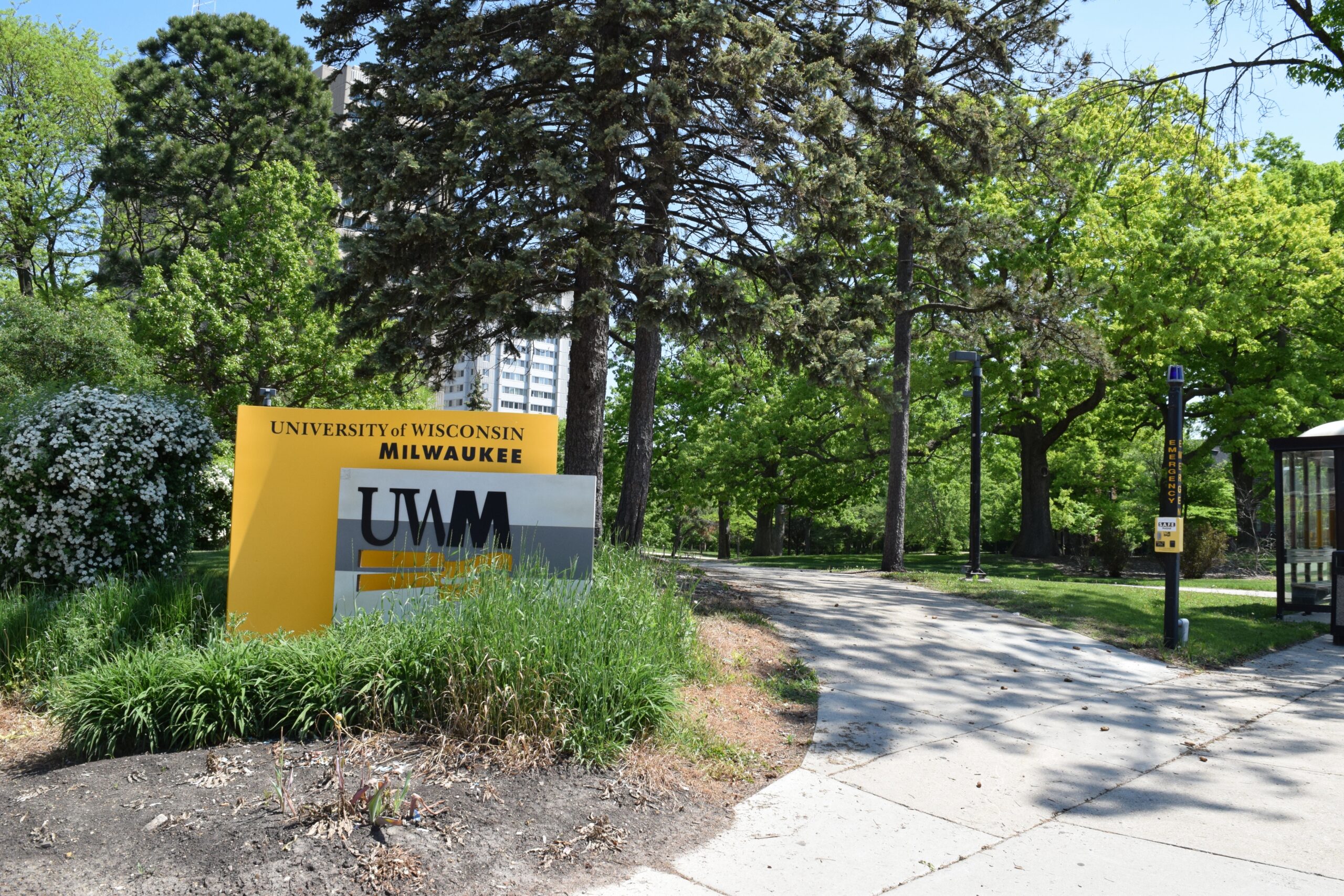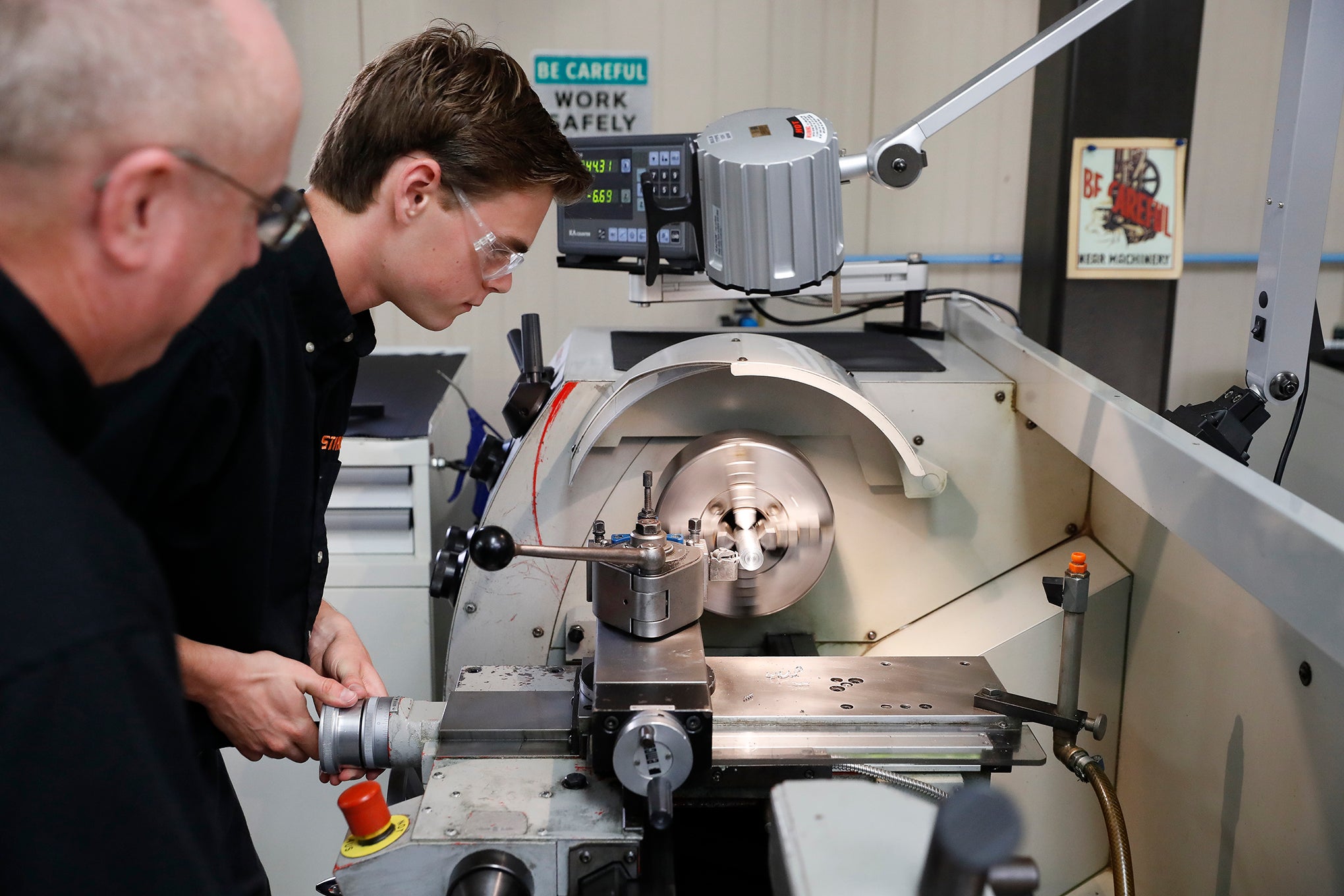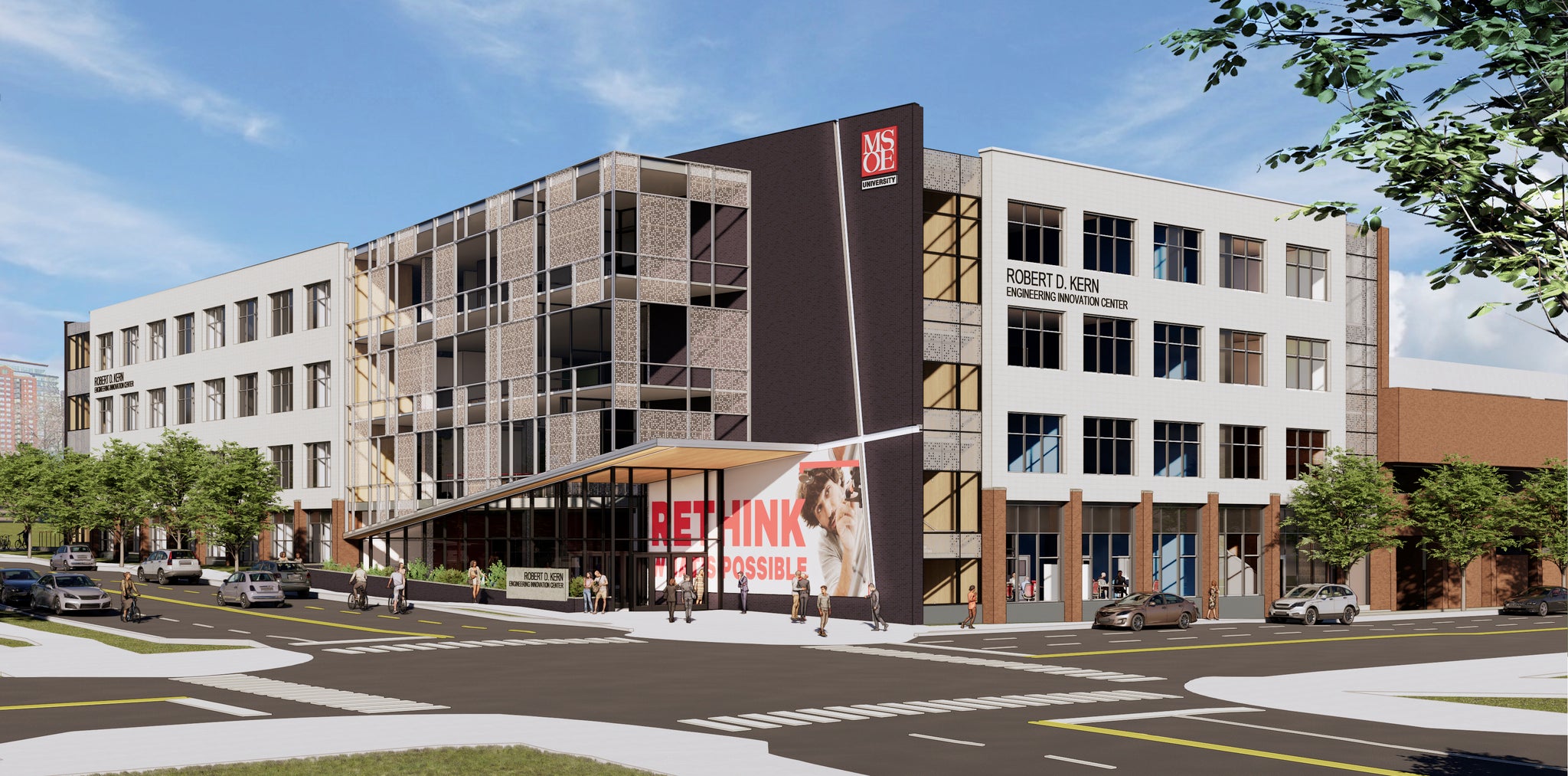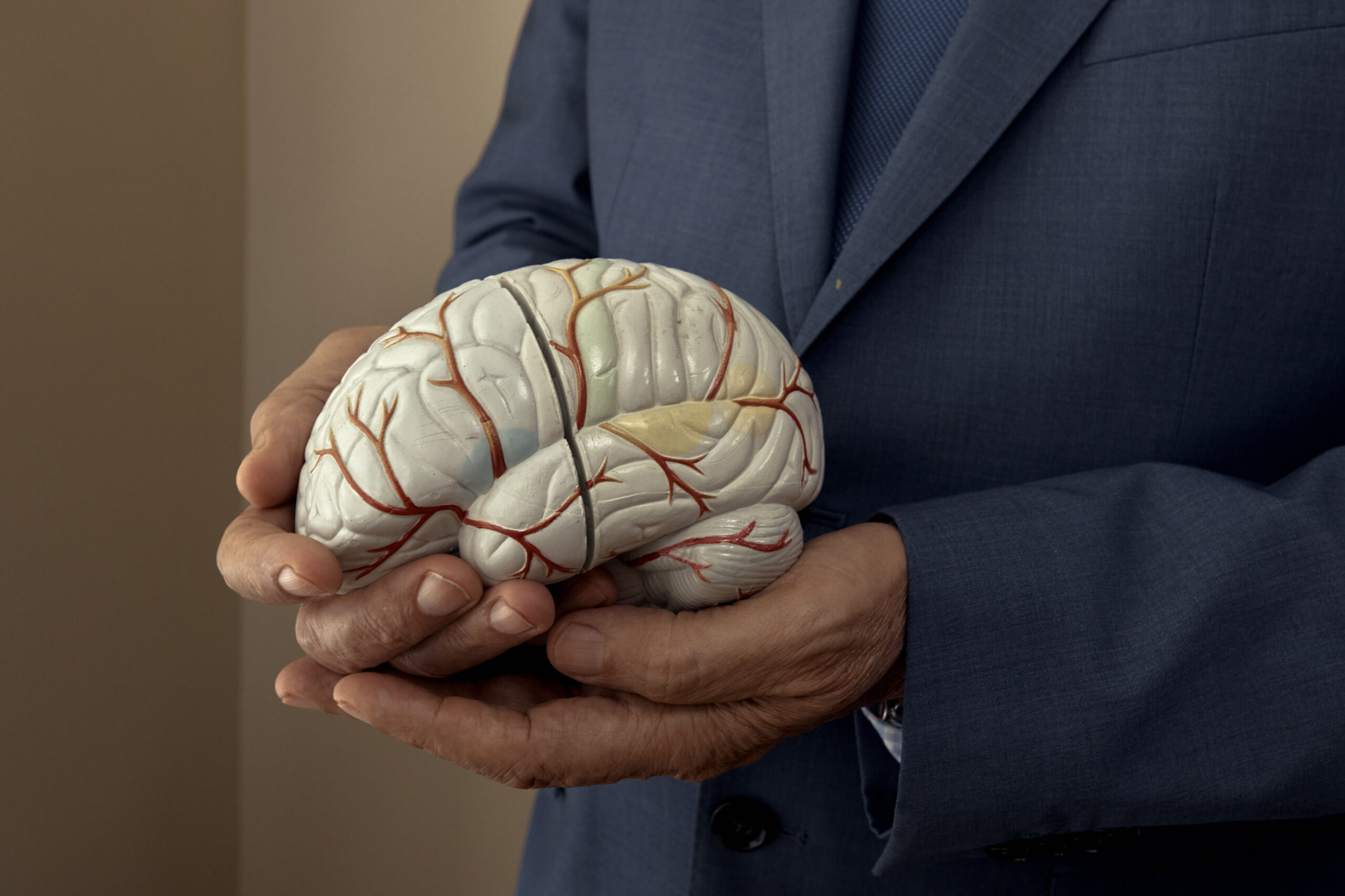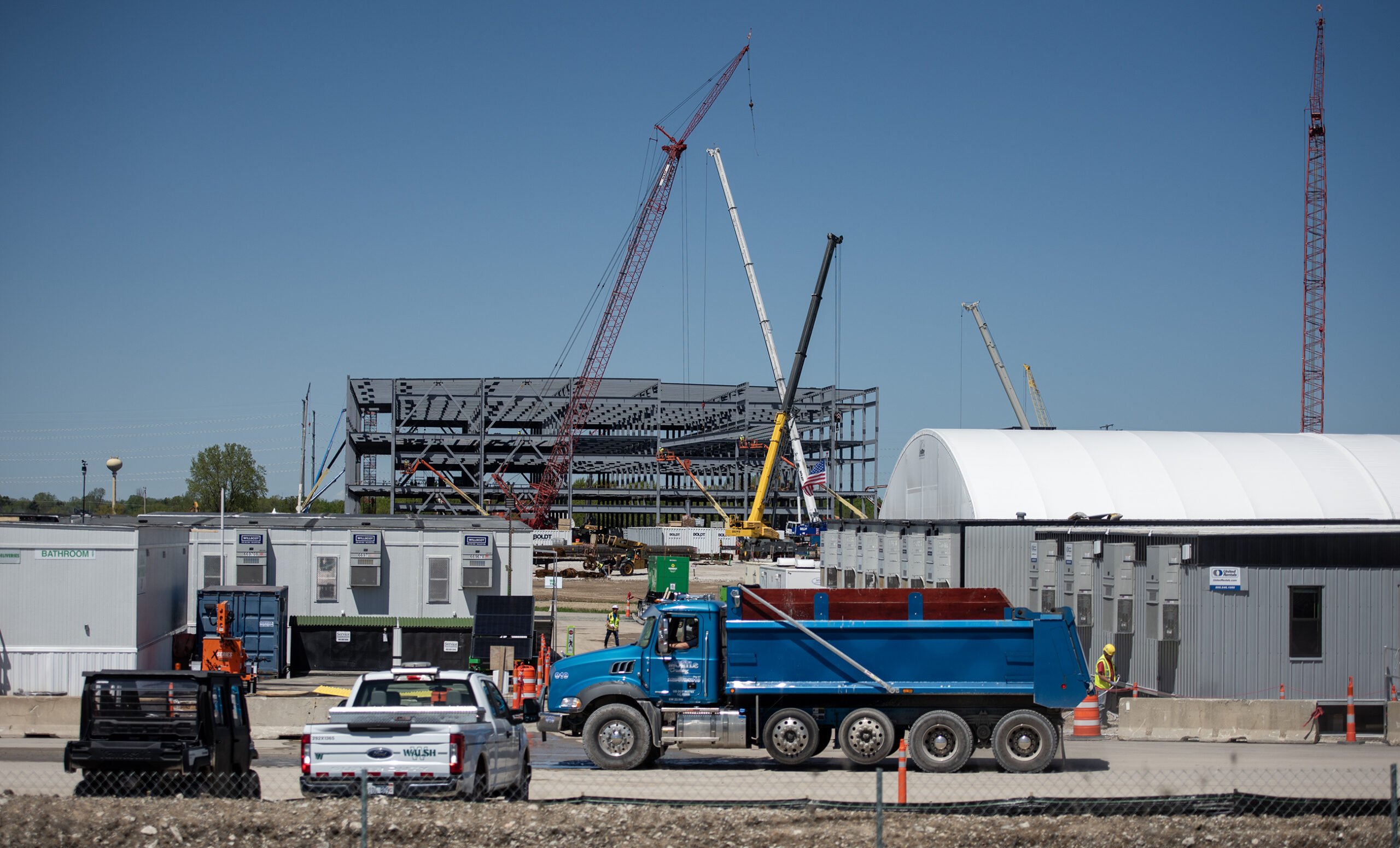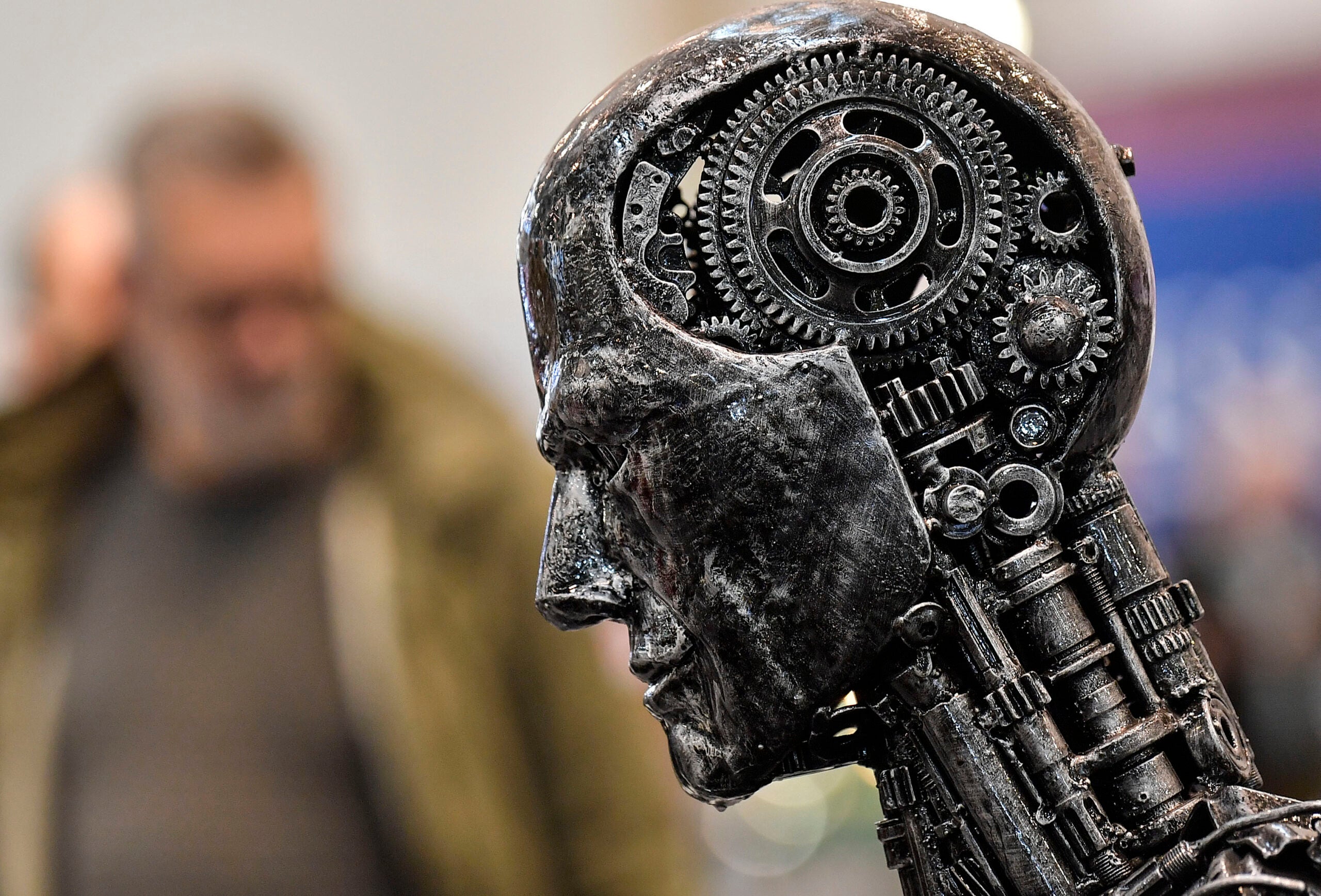This fall, Wisconsin will become Microsoft’s seventh location in the world to build, develop and test artificial intelligence solutions to improve the efficiency of business operations.
On May 8, President Joe Biden and Brad Smith, vice chair and president of Microsoft, visited Racine County to announce the corporation’s $3.3 billion investment in the state.
“We will use the power of AI to help advance the next generation of manufacturing companies, skills and jobs in Wisconsin and across the country,” Smith said during the press conference.
Stay informed on the latest news
Sign up for WPR’s email newsletter.
Microsoft’s investment includes constructing a data center at the former site of Foxconn and creating a new AI Co-Innovation Lab in partnership with UW-Milwaukee’s Connected Systems Institute.
“It’ll be the first AI Co-Innovation Lab for Microsoft strictly focused on manufacturing,” said Joe Hamann, the institute’s executive director, on WPR’s “Wisconsin Today.”
Hamann calls the new lab a “unique opportunity” for local, regional and national manufacturers, as well as faculty and students with the Connection System Institute, which launched at UWM in 2017.
“There’ll be a mix of computer activities where the Microsoft Teams and perhaps students, faculty members are actually hands-on building artificial intelligence models. Those models will be tested and deployed in a manufacturing environment,” he said.
According to the Wisconsin Economic Development Corporation, there are more than 9,000 manufacturing companies across the state.
“One of our big objectives here at CSI is to give manufacturers the tools they need to apply technologies in the right way to give a positive impact to their business,” Hamann said. “Microsoft helps the industry partner build a prototype of a solution that they can go and deploy in their own operation.”
Microsoft’s goal is to serve 270 Wisconsin companies by 2030, including 135 manufacturing businesses. Hamann said manufacturers in Milwaukee and in other parts of the state are already showing their interest in how to get involved with the Co-Innovation Lab.
“There’s generative AI applications that can be used to proactively look ahead and help manufacturers forecast changes, and help them more intentionally optimize their operation. Plus, how they’re making the product, how materials are flowing through their plant, and how people are actually working in the environment,” Hamann said.
According to Hamann, AI is a powerful problem solving tool that some Wisconsin manufacturers are already using in their business model. He added that other manfacturers are unaware of how AI can improve business productivity.
“I’m not an AI expert, but many of us are using it for simple productivity gains. Email writing, drafting reports, etc … helps us get more work done. Certainly, that will have an impact in industry manufacturing applications across the state,” he said.
A 2023 report from the Wisconsin Center for Manufacturing & Productivity found that workforce issues top the list of manufacturers’ concerns. With the thought of Wisconsin’s manufacturing industry moving toward AI solutions, Hamann said the future workforce will need to be trained differently.
“The jobs of yesterday where I may have worked on an assembly line, where I stood for an eight hour shift, and I put two pieces together, now that job can be automated. Now my job is different. Now I need to understand how to program and how to gather data from the robot,” he said.
As far as the timeline to start open the new lab, Hamann said in the months ahead CSI’s facility will be refurbished to house the Microsoft team.
“The timeline for that is still to be determined,” he said. “We’re optimistically looking for anywhere from four to six months where we have activity up and running in the lab.”
Wisconsin Public Radio, © Copyright 2025, Board of Regents of the University of Wisconsin System and Wisconsin Educational Communications Board.
